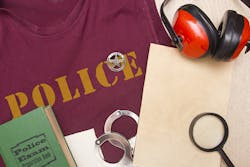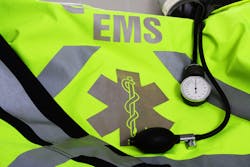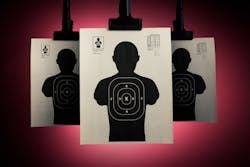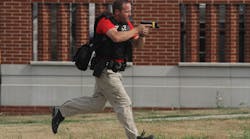I can’t remember who said it (or who is credited with the quote) but a wise man once said, “Any day wherein you don’t learn something new is a wasted day.” Another wise man said, “The day you quit learning is the day you start dying.” I believe both of those statements and consider them particularly applicable to law enforcement.
Virtually every agency in our nation requires a high school diploma at a minimum. Many require a college degree—at least an Associate’s—in criminal justice or something else the agency might find of value. For promotions beyond a certain point, many agencies require a Bachelor’s Degree. Every year, officers are required to take a minimum number of hours of in-service training and to attend firearms qualification a specified number of times. For all of that, answer this question for yourself: Is it enough?
Consider the extreme applicability of the two quotes that opened this article to law enforcement. Failing to learn may in fact cost you gravely. There’s really no such thing as “knowing too much.” After you’ve completed the academy, you should make a concerted effort to attend training beyond the minimum mandates. We all have the courses we consider fun and the ones we don’t like as much. That admitted, the training pursued should be a mix of both (even though we don’t like it).The academy provides a minimal foundation of general knowledge, Constitutional law, state law, county or city law and your agency general orders/standard operating procedures. But no part of the academy makes you an expert in anything. Minimal defensive tactics, basic firearms, less lethal tools, arrest techniques… yes, all of that is covered, but what truly interests you?
Do you prefer to learn in a classroom or on a mat? How about on a range? The key to maximizing value of training throughout your law enforcement career is to figure out what you truly enjoy and start working toward becoming a recognized expert in that topic. But as you do so, you shouldn’t be neglecting everything else. Do you want to join SWAT? Do you want to become a detective? Do you want to work motors? Be mounted? Work bicycle patrol? Each different specialty within law enforcement requires a different knowledge set and while the training for each does get you to meet the minimum standards, no one should every be satisfied simply meeting the minimums.
As odd as it may sound, if you want to join your agency’s SWAT team, you need to focus on more than just fitness and guns. Take classes on tactics; building searches and clearing; team movement; small unit tactics and then, as odd as this might sound, negotiations. Study physics, especially as they apply to ballistics. Take a class or two on architecture or construction. Take a water survival course or anything having to do with maritime operations (as applicable). Almost every agency has a river or lake in or bordering their jurisdiction. Many officers don’t think of it this way, but SWAT officers probably have more de-escalation training than most patrol officers. Why? Because the chances of them finding themselves in an emotionally charged high threat situation is more likely for them. If everything has gone sideways, who does patrol call? SWAT has to be able to handle all the high risk situations and their goal is always the same: to secure the incident with no shots fired and no innocents injured or lost.
If you want to apply to be a detective with your agency, read… a lot. Take courses on logic and philosophy. Why two such diametrically opposite topics? Because sometimes detective work is simply moving down a logic equation from A to B to C to D and when you add D to E to F you get an answer that can’t be argued. Better yet, it can be proven. But sometimes, logic will fail you because criminals simply don’t have any. Sometimes they are operating on a logic or value system that is uniquely their own and when that happens, you’ll have to be able to think abstractly and see connections that don’t fit into structured logic. Studying classes in theoretical topics like philosophy can help strengthen your ability to make those abstract connections.Every officer or deputy, of every level, should pursue additional training in emergency medical care. What does it hurt to be certified as an Emergency Medical Technician (EMT)? What does it help you ask? 99% of the time, if you need to use those trauma care skills it will be to assist/treat someone else. Pursuing that higher level of medical care training demonstrates an attitude of service; you’re improving your skill sets to serve others.
Finally, even if all you want to do is work patrol for your entire career—and some officers do this with aplomb—take some training in forensic evidence. There are courses available in identifying evidence (because some of it is not so obvious), photographing evidence, gathering it, packaging it, documenting it and managing it after all that. Inevitably, you will be the first on scene for a crime that has left plenty of evidence laying around. Knowing how to manage that scene and protect all of the evidence will benefit you. Knowing the value of the different kinds of evidence to the investigators and understanding what the evidence techs will have to do with it will help you preserve each unique scene better than the next officer.Is this a statement to encourage competition between you and your fellow officers? Yes and no. You should always be in competition with yourself, to be better today than you were yesterday. But make no mistake, when that lieutenant slot opens and you put in for it, you are in competition and you want your packet to look better than the next guy’s. That takes commitment and an investment of time and effort; YOUR time and effort. Sometimes you’ll have to take training “on your own time and dime.” That’s the price you pay for getting to where you want to be. Embrace that and move yourself forward.







